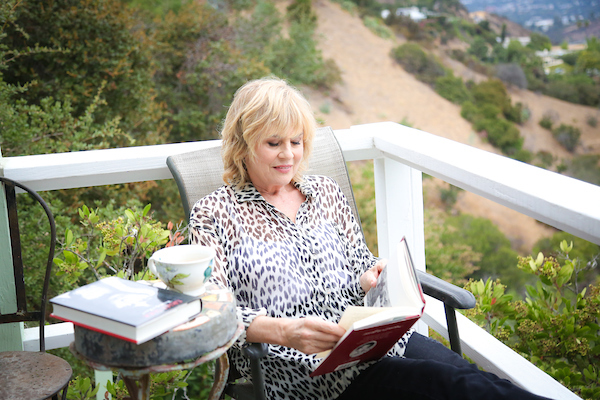When we were young, bedtime stories were a treat. They piqued our imaginations, they filled us with wonder and they kept us entertained. They took us on journeys into fantasy worlds and exploded
in our dreams.
When I was six and I learned to read, my mother took me to the library and I read every book in the children’s section. Twice. I loved stories and I lived them through my favorite books: “The Secret Garden,” “Charlotte’s Web,” “The Twelve Dancing Princesses” and of course, “Alice in Wonderland.” Reading them made me feel alive and adventurous.When my parents turned out the lights at night, I repeated the stories back to myself. They had happy endings and they were still with me when I woke up in the morning.
As grownups, we still tell ourselves stories but they almost never have happy endings. What happened? Where did the good ones go and why did the bad ones take their place? They aren’t magical. They aren’t creative. They don’t lull us to sleep or make us feel safe. They scare us and make us want to take Xanax. It takes a lot of
awareness and courage to rise above them and stop repeating them over and over in our minds.
Making up bad stories about our lives seems to be a universal problem. We are conditioned to imagine worst case scenarios. I was taught to not trust the good case scenarios. When I wanted something good to happen, my mother said, “Don’t get your hopes up. You might get disappointed.” She didn’t mean to make me feel badly. She had been programmed to expect the worst but that belief system is already the worst.
We have to choose. We can drown in the darkness and imagine the bad stuff or we can challenge ourselves to stay aware and imagine the good stuff. It takes energy and commitment to stay in that moment and stop scaring ourselves. I walk three times a week with a close friend, Michael. We love to walk and we love being together but we found ourselves falling into a bad habit. We were making up
stories about the people around us that were not complimentary and we were exhausted by the end of the walk. Michael went on a trip and when he got back, he told me about it while we walked. He’d had a great time and we laughed and felt lighthearted. People along the way smiled at us as if our good moods were contagious. When we finished the walk, we felt so energized and happy, Michael said, “Let’s make a pact to stop making up bad stories. We don’t know these people or what their lives are like so let’s find something good about them.” We shook on it and I’m working on keeping that pact.
In these days of challenging politics (I’m being kind), convincing yourself that all is fine isn’t necessarily true. But convincing yourself that we’re doomed isn’t necessarily true either. One truth remains. We might as well stop telling ourselves stories, bad or good ones, and stay in the moment. We just never know what’s going to happen.
A friend, Bethany, sent me a quote by Ram Dass that helps me stay on purpose. I’ve written this in my blog before but it deserves a repeat. And a repeat. And a repeat.
Ram Dass said;
“Whether I’m in the Golden Age or the Apocalypse, my work is the same:
Quiet my mind.
Open my heart.
Relieve suffering
wherever I find it.”
“Healer, Heal Thyself,” is a great wisdom. Relieving your own suffering is as important as relieving someone else’s, so it all starts with you and what you tell yourself. It takes discipline and strength to catch yourself in the middle of a bad story and change it. I try, but when I can’t stop obsessing over something that’s scaring me, I call a friend to help me get over the hump.
I was in Stephen Levine’s death and dying workshop when a man with AIDS stood up. “My father is a preacher,” he said, “and he told me I’m going to hell for being gay and having AIDS.”
Stephen said, “That belief system belongs to your father. There are tons of other ones floating around. Why not choose a belief system that makes you feel good?” It’s a simple directive that’s hard to carry out.
I like to tell myself the following story:
A poor family had one son. They loved him beyond measure. When he was thrown from a horse and crippled, the family were afraid he would have a difficult life. They thought it was such bad luck. Two weeks later, army recruiters came to the village and took every able-bodied man to fight in the war. Many of them died. Because his
legs were broken, the young man was allowed to stay with his family. They thought it was such good luck.
Life is like that. We call something bad. We call something good. But really, we don’t know what it is or what it will be. Sometimes we feel so broken, it seems like we can never turn our thoughts around, but when we notice it and stick with it, we find a way.
There is a crack in everything.
That’s how the light gets in.
– – -Leonard Cohen


Recent Comments